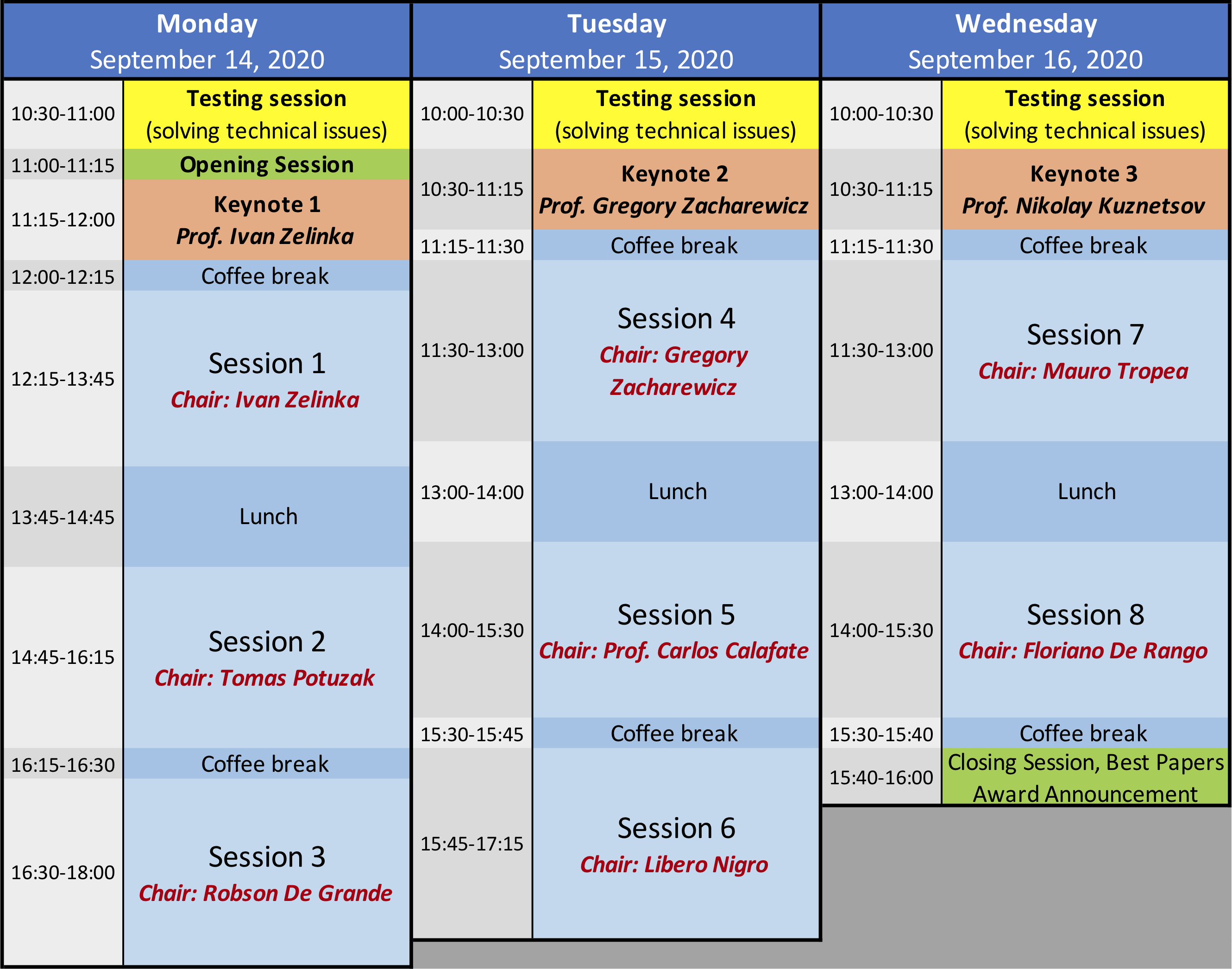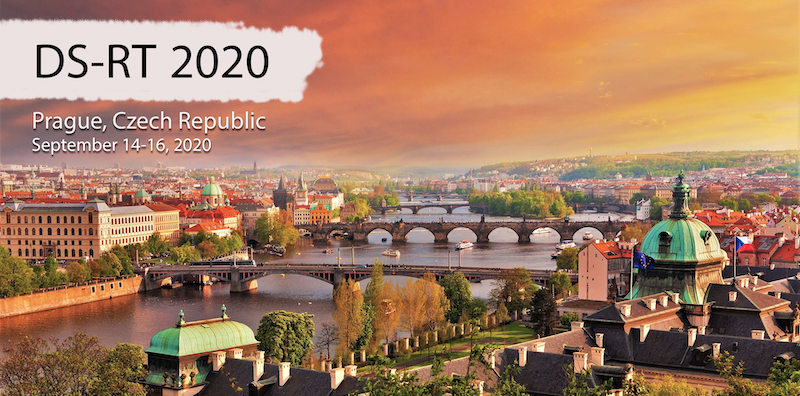IEEE/ACM DS-RT 2020
Tentative Technical Program (organized via ZOOM in CET timezone)
Program at Glance

Notes:
Keynote:45 min incl. discussion
Presentation in session: full papers up to 20 min. incl. Q&A; short papers 15 min. incl. Q&A.
Participants are asked to switch off microphones during sessions and switch on only when asking
(session chairs have rights to switch off MC remotely).
Participants who do not want to be active in the virtual room and ask questions can use authorized access
to real time stream on youtube channel.
The conference will be held online using the ZOOM online conferencing communicator. You can join to each of the rooms/sessions using the ID and password. Both will be provided via email. To access the session you need to install ZOOM client that can be downloaded for free and without any registration from the website https://zoom.us/download
Monday, September 14
10:00 - 11:00
Testing session (solving technical issues)
11:00 - 11:15
Opening Session, welcome speech
11:15 - 12:00
Keynote 1
12:00 - 12:15
Coffee Break
12:15 - 13:45
Session 1 : Distributed Simulations
Chair: Prof. Ivan Zelinka
13:45 - 14:45
Lunch
14:45 - 16:15
Session 2 : Scheduling & Simulations
Chair: Dr. Tomas Potuzak
- A New Julia-Based Parallel Time-Domain Simulation Algorithm for Analysis of Power System Dynamics
- A New Mobility Samples Encoding Scheme Based on Pairing Functions and Data Analytics
- Agent-based Modeling and Simulation for Emergency Scenarios: A Holistic Approach
- A Cost-effective Scheduling Control for a Safety Critical Hybrid Power System
16:15 - 16:30
Coffee Break
16:30 - 18:00
Session 3 : Real-Time Simulations
Chair: Dr. Robson De Grande
- MEDART-MAS: MEta-model of Data Assimilation on Real-Time Multi-Agent Simulation
- Real-time Feedback in Node-RED for IoT Development: An Empirical Study
- Real-Time Simulation of Robot Swarms with Restricted Communication Skills
- CoSim: A Simulator for Co-Scheduling of Batch and On-Demand Jobs in HPC Datacenters
Tuesday, September 15
10:00 - 10:30
Testing session (solving technical issues)
10:30 - 11:15
Keynote Session 2
11:15 - 11:30
Coffee Break
11:30 - 13:00
Session 4 : Cloud, Fog & Edge Computing
Chair: Prof. Gregory Zacharewicz
- Digital Twins at the Edge to Track Mobility for MaaS Applications
- E-Scooter Sharing: Leveraging Open Data for System Design
- Applying Faster R-CNN in Extremely Low-Resolution Thermal Images for People Detection
- Simulating Heterogeneous Models on Multi-Core Platforms using Julia's Computing Language Parallel Potential
13:00 - 14:00
Lunch
14:00 - 15:30
Session 5 : Vehicular & Edge Computing
Chair: Prof. Carlos Calafate
15:30 - 15:45
Coffee Break
15:45 - 17:15
Session 6 : Secure & Efficient Computing
Chair: Prof. Libero Nigro
Wednesday, September 16
10:00 - 10:30
Testing session (solving technical issues)
10:30 - 11:15
Keynote Session 3
11:15 - 11:30
Coffee Break
11:30 - 13:00
Session 7 : Simulations & Modelling
Chair: Dr. Mauro Tropea
13:00 - 14:00
Lunch
14:00 - 15:30
Session 8 : UAVs & Simulations
Chair: Prof. Floriano De Rango
- Simulation and Digital Twin Support for Managed Drone Applications
- An Iterative Stochastic Approach to Constrained Drones' Communications
- Bio-Inspired Drones Recruiting Strategy for Precision Agriculture Domain
- A Real-time Simulation Framework for Complex and Large-scale Optical Transport Networks based on the SDN Paradigm
